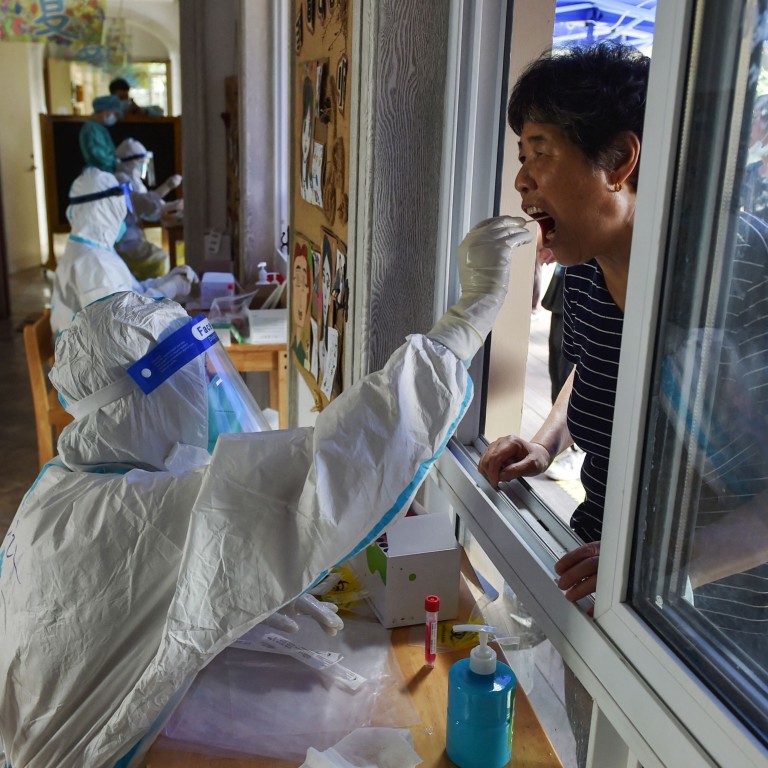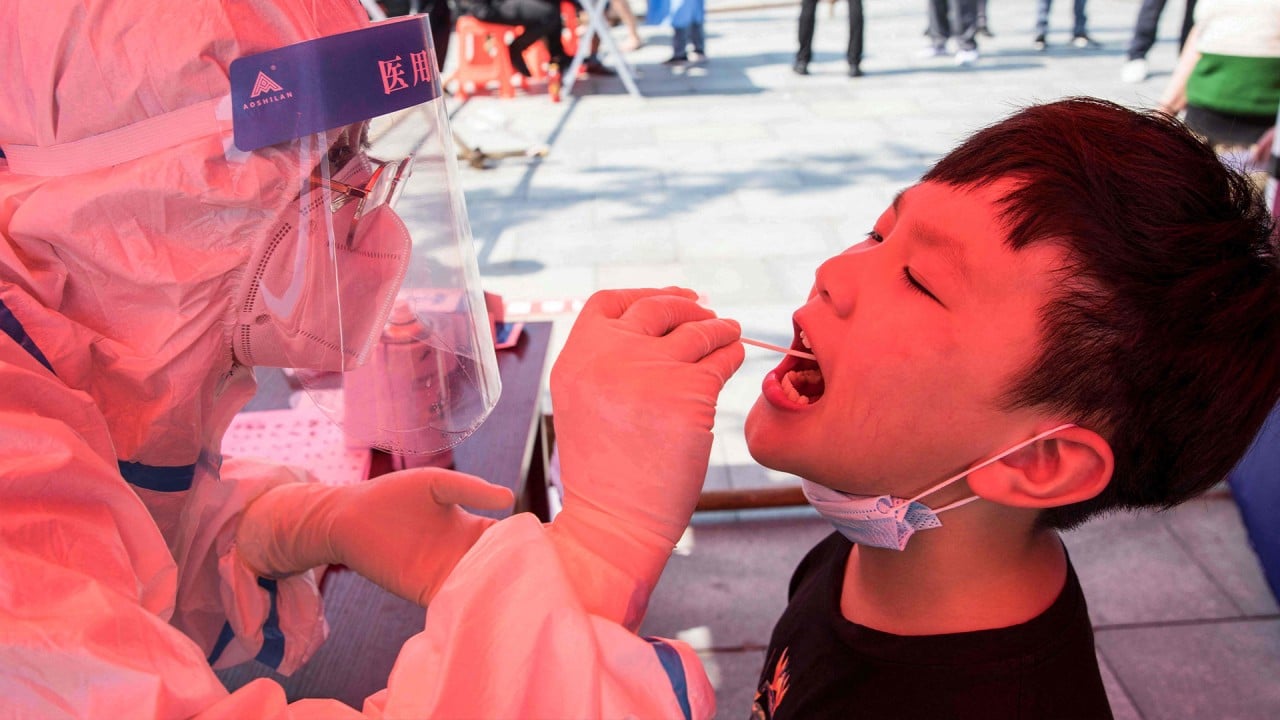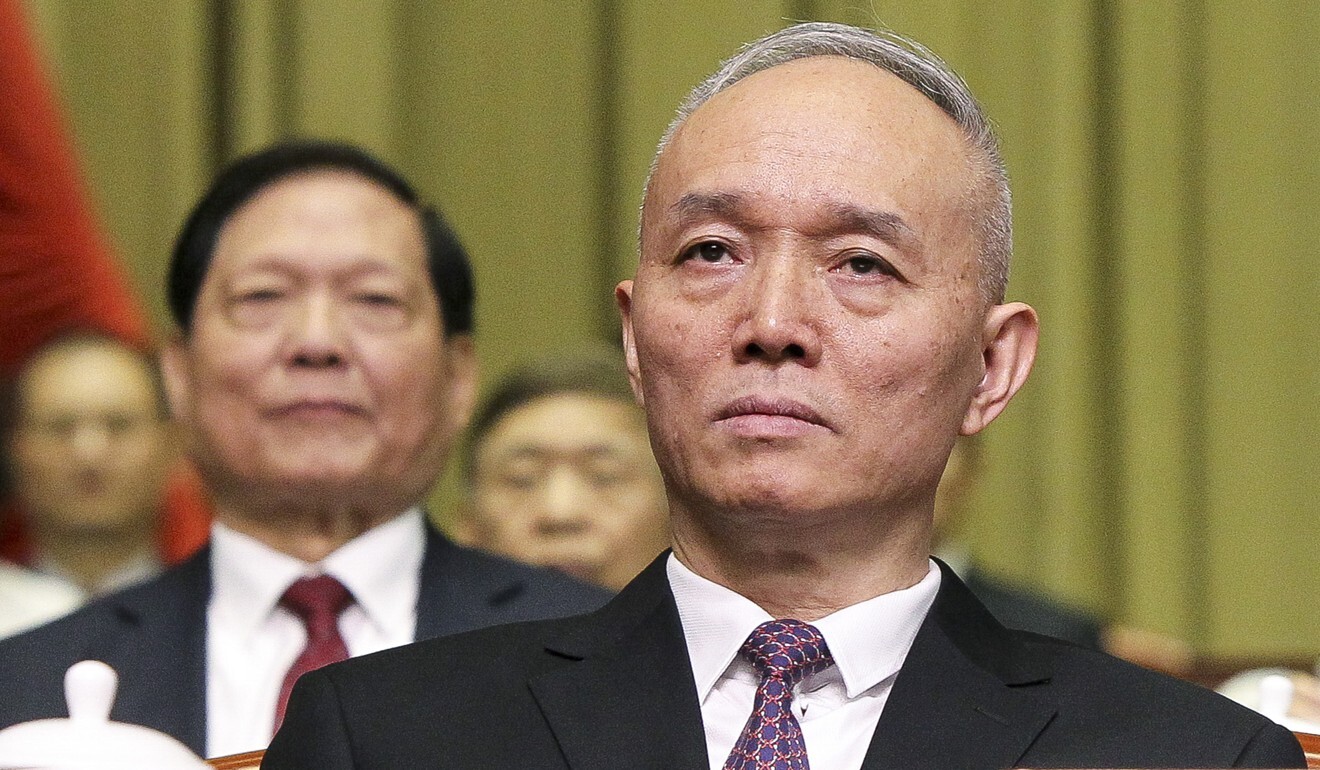
Transport into Beijing cut to guard capital ‘at all costs’ against Covid-19 surge
- More than 350 people in 27 cities have been infected with the highly transmissible Delta strain in latest outbreak, including seven in Wuhan on Monday
- Four cases reported in the capital, where authorities have barred anyone from medium- and high-risk areas from entering

02:23
Covid-19 returns to China’s Wuhan as Delta variant spreads to 10 provinces
She told officials and experts in the province that preventing outbreaks from imported cases was always the top epidemic control priority and should not be relaxed “even for one moment”.
“All departments must perform their duties and everyone fulfil the obligation of taking responsibility and implementing relevant policies,” Sun said, urging that epidemic control be handled in a “very strict” manner.
China’s Covid-19 tracking app crashes amid fresh outbreak
The chairman of Nanjing’s Lukou International Airport was removed from his post on July 23 after airport mismanagement was deemed responsible for cleaners catching Covid-19 from a cargo flight in Russia on July 10 and subsequently spreading the virus to other staff and passengers and to residents in inland cities who had no connection with the airport.
Beijing, with 17.9 million fully vaccinated people, or 82 per cent of its total population, remains on high alert as more cities have reported cases linked to Nanjing. As a top travel destination during the summer holidays, Beijing is also considered at high risk of importing cases from elsewhere.

To guard against more imported cases, authorities at the Beijing municipal meeting agreed to step up control measures on people from medium- and high-risk areas – usually defined at the district neighbourhood level – from entering the capital.
Anyone from a city with cases identified has been banned from entering Beijing and flights, trains and long-haul buses from those places have been halted. A search of booking sites on Monday showed tickets for trains from outbreak areas such as Nanjing and Zhangjiajie were unavailable.
Employees of government agencies and state-owned enterprises have also been banned from travelling to affected cities and agencies must not organise travel for them. Anyone from Beijing who is in one of these cities will not be able to return until they have completed 14 days of health monitoring and a negative coronavirus test 48 hours before boarding a flight or train.
Are inhaled Covid-19 vaccines the future?
Authorities at the meeting also decided that people already in Beijing from cities with medium- and high-risk areas will be tested and their health monitored to “ensure no one is missed”.
The outbreak in Nanjing has expanded so far that some large outbreaks were caused by people who have never been to the Nanjing airport.
The outbreak in Wuhan was linked to a worker who waited for a train in Jingzhou, Hubei, with a tourist group from Huaian, Jiangsu. The group were infected after spending several days in Zhangjiajie.
Nanjing on Sunday ordered that clinics and outpatient care with a high risk of exposure be suspended, including ear, mouth and throat services, dentistry and plastic surgery.
Nanjing’s neighbour Yangzhou reported 56 symptomatic cases on Monday, mostly in a cluster that has been traced to an elderly woman who had travelled to the city from Nanjing and visited several mahjong parlours before she tested positive on Wednesday.
Yangzhou authorities have offered a 5,000 yuan (US$775) reward for tip-offs about people who may have been at the mahjong parlours last week or those who may have travelled to the city from medium- or high-risk areas and could have been missed by the control measures.
Why is the Delta coronavirus variant faster to make people sick?
Jiangsu governor Wu Zhenglong visited Yangzhou on Sunday, saying the situation in the city had “yet to hit the bottom” and posed a severe and complicated challenge.
Elsewhere in China, authorities have stepped up pandemic controls as the number of infections continues to rise. After three new cases and six asymptomatic infections were reported on Sunday, Zhuzhou in Hunan issued a three-day stay-at-home order for the city’s 1.2 million residents excluding essential workers starting on Monday.

